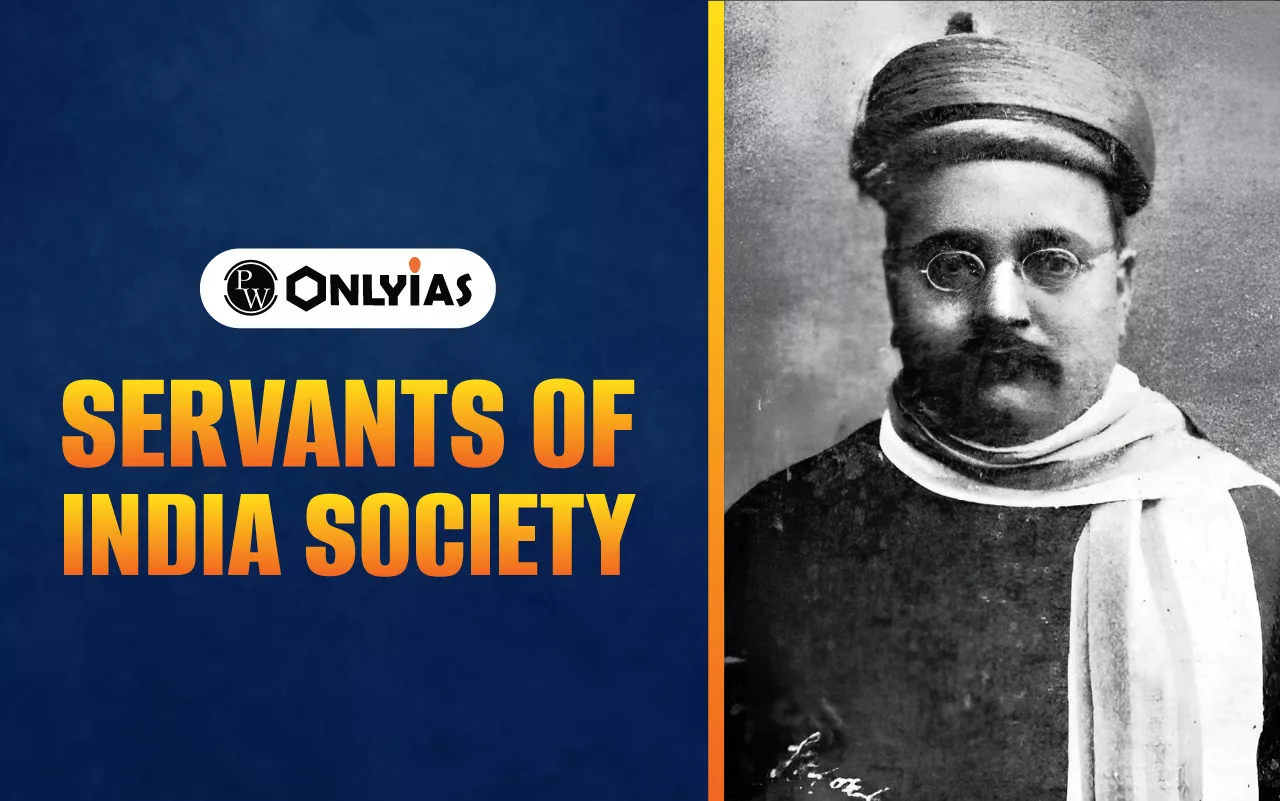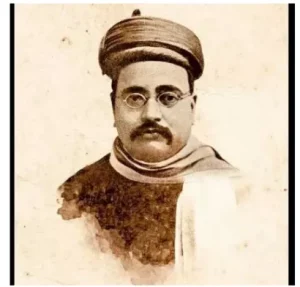Servants of India Society, founded in 1905 by Gopal Krishna Gokhale, was created to train dedicated workers for national service. It focused on education, social reform, and spreading civic awareness across India. The Society’s members worked to fight social evils and uplift marginalized communities. Its disciplined, service-oriented approach made it an important force in early Indian nationalism.

Servants of India Society: If you have ever explored the social reform movements of modern India, you have probably come across a powerful name, the Servants of India Society. It is one of those organisations that did not always make it to the front page of history textbooks, yet it shaped India’s social conscience in ways that still matter today.
Here, let us walk through what the Servants of India Society was, who founded it, what its members stood for, and why its objectives still feel relevant. Think of this as a friendly, long-form guide that makes history feel more human and less like a stack of memorized dates.
Servants of India Society was a voluntary organization formed during India’s freedom movement by the people. But here is the interesting bit—it wasn’t focused on politics alone. Instead, the Society dreamed of creating a band of dedicated individuals who would serve the nation selflessly, uplift India’s poorest communities, and spread values like justice, equality, and civic responsibility.
Imagine a group of young, spirited Indians who committed their entire lives—not just weekends or spare hours—to work for social change. That is what this Society encouraged and nurtured.
It wasn’t a political party. It wasn’t a protest group. It was a nation-building community that wanted a better nation in every way.
The Society was founded in 1905, a time when India was going through a major shift—partition of Bengal, rise of nationalism, and growing dissatisfaction with British rule.
The organization was founded by the respected moderate leader Gopal Krishna Gokhale, one of the most influential faces of early Indian nationalism, who contributed a lot to our struggle. Gokhale believed that for India to progress, it needed not just political freedom but also social preparedness. People needed education. They needed awareness. They needed guidance to be a better version of themselves and to contribute to the nation.

Gokhale wasn’t the fiery, aggressive kind like some leaders of the time. His approach was grounded, thoughtful, and reform-oriented so that through his ideas, he could change the nation into a better one.. By founding the Servants of India Society, he wanted to train a generation of committed social workers who could guide Indians using reason, compassion, and moral leadership. In simple words, he wanted torchbearers for India’s future.
The Society’s entire purpose revolved around the idea of national service as a lifelong mission. Here’s what it was truly about:
The Society aimed to develop individuals who could devote their lives to the upliftment of the country in every way and could create a better nation together.
Issues like education, health, caste discrimination, women’s rights, and child welfare were some of its major focus areas.
Gokhale felt that Indians needed to understand their rights and responsibilities. The Society helped spread this awareness.
Members were expected to maintain strict personal ethics—honesty, simplicity, and discipline were non-negotiable.
In short, the Servants of India Society was about grooming people who would serve the nation before themselves.
Every impactful organization starts with clear goals. The objectives of the Servants of India Society were beautifully structured and extremely ambitious.
The Society believed that true nation-building happens through dedication, not slogans or speeches.
Members worked to spread literacy, encourage female education, and improve teaching standards.
From caste discrimination to untouchability, child marriage, and poverty, members addressed some of India’s hardest challenges.
The organization trained volunteers who could guide villages, organize awareness campaigns, and support communities during crises.
The workers often acted as intermediaries, making sure people knew their rights and could use systems effectively.
The Society wanted to nurture honesty, responsibility, and national unity.
These weren’t just written objectives—they were a way of life for its members.
A movement is only as good as the people who drive it. The members of the Servants of India Society were some of the most remarkable personalities of early 20th-century India.
Here are a few well-known names associated with the Society:
One of the earliest associates, known for his commitment to public welfare.
He later became a pioneering leader in India’s labour movement.
A brilliant orator and statesman nicknamed the “Silver-Tongued Orator of the British Empire.”
Founder and guiding force of the Society.
A prominent freedom fighter and social activist.
These members pledged to live with minimal personal wealth, dedicate themselves fully to service, and maintain rigorous discipline. It wasn’t an easy life—but it was meaningful.
To understand the legacy of this organization, it’s important to see how it functioned on the ground. Here’s a quick picture of its work:
Members underwent training in public speaking, social work, community organization, and ethical conduct.
A large part of their work involved living in rural areas, understanding people’s problems, and helping solve them.
The Society established educational programs to promote both formal and adult education.
They carried out campaigns against oppressive customs and encouraged modern, progressive thinking.
Members played an active role during famines, epidemics, and natural disasters.
Through lectures, publications, and local meetings, they spread knowledge about hygiene, civic duties, and national ideals.
The Servants of India Society wasn’t like the political parties or protest groups we often hear about. Here’s what set it apart:
While most nationalists were politically driven, the Society focused primarily on social reform.
Members had to live a life of simplicity, honesty, and complete commitment. It wasn’t a club—it was a vow.
Membership wasn’t temporary. It demanded a lifetime of service.
Even though the freedom movement grew increasingly intense, the Society remained rooted in peaceful reform and constitutional methods.
Rather than just talking about problems, the Society worked on the ground to solve them.
Even though the Servants of India Society wasn’t a political pressure group, its impact on India’s national movement is quite significant.
Gokhale himself was a mentor to Mahatma Gandhi. Gandhi often said that Gokhale shaped his understanding of Indian society.
The Society played a strong role in educating people about their rights and responsibilities under colonial rule.
Balanced, rational nationalism became the organization’s trademark. It kept alive the idea of constitutional reform even when extremism was on the rise.
The Society believed India couldn’t be truly free without social progress—and it worked tirelessly toward that goal.
Check Out UPSC CSE Books
Visit PW Store
Like any serious reform movement, the Society also faced challenges:
The organization required total devotion, which meant fewer people were willing to join.
Most members lived very simple lives, which made large projects difficult.
After Gokhale’s death, internal disagreements affected its momentum.
With Gandhi’s mass mobilization techniques taking centre stage, the Society’s quiet reformist approach often got overshadowed.
But despite these hurdles, the Society maintained its moral grounding.
Even though the organization isn’t as active or influential today, its legacy is undeniable, and everyone knows it.
The idea of committing one’s life to public service inspired many later organizations.
Many members went on to lead important social and national initiatives for the betterment of the people.
The Society set a standard for integrity that many public servants still look up to.
From education to labour rights, their work shaped several early laws and reforms in our country. So that a better version of it can come in front.
Gokhale’s belief that India needed social reform alongside political struggle is still deeply relevant.
Ready to boost your UPSC 2026 preparation? Join PW’s UPSC online courses today!
The Society was founded by Gopal Krishna Gokhale in 1905. He wanted to create a group of people who would dedicate their lives to serving the nation and improving society.
Its purpose was to train committed individuals who could work for social reform, spread education, and help uplift the weaker sections of society.
Members worked in villages and towns, ran schools, created awareness about civic duties, fought social evils, and helped people during crises like famines or epidemics.
Some notable members were N.M. Joshi, Srinivasa Sastri, and Natesh Appaji Dravid, along with Gokhale himself.
Yes, but in a different way. Instead of protests or political agitation, it focused on preparing society through education, awareness, and ethical leadership.
It’s remembered for promoting selfless service, honesty, and social responsibility—values that remain important for nation-building even today.

<div class="new-fform">
</div>